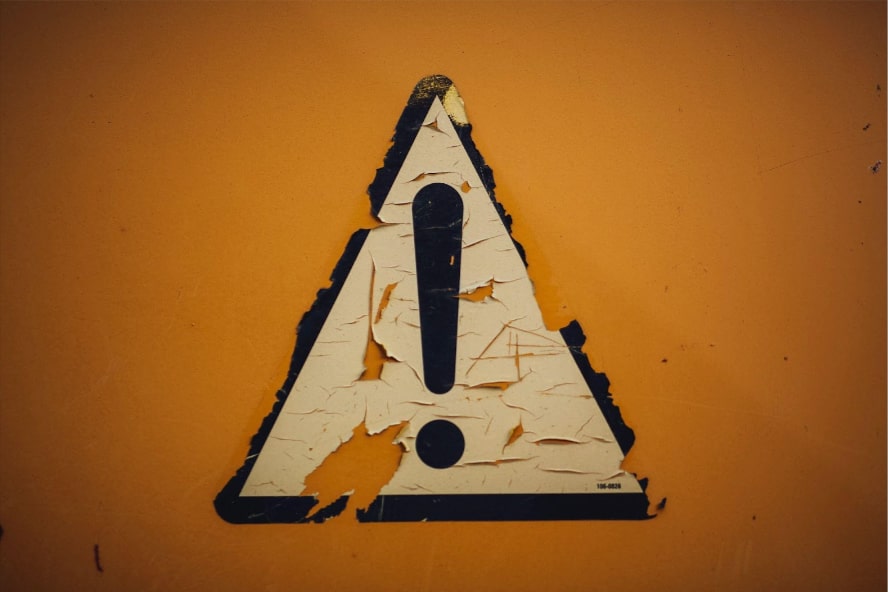No matter what you buy or sell, all commercial goods have one thing in common; their usage of labels. While they may seem insignificant at first, labels are essential for many reasons. They typically contain all the important information you will need about a product, its manufacturing details, and the company that made it.
Unlike commercial labels, manufacturing labels are not meant to come off quickly, regardless of the harsh environmental conditions they may be exposed to. High-quality harsh environment barcode labels are designed to remain intact for decades. Thankfully, companies like Insignia are available to assist you in navigating your coding and labelling needs, allowing you to select the perfect choice for individual specifications.

The Importance of Durable Labels
Regardless of your industry, labels are integral to every phase of standard business procedures and practices. If your sector regularly requires your equipment and devices to be exposed to harsh conditions, investing in durable barcode labels is crucial
One of the most important uses for labels and barcodes is inventory traceability, which is the ability to track and trace products throughout the supply chain from the manufacturing stage to the sale. A label will be exposed to a lot of wear and tear throughout this journey, and maintaining its structure and readability is vital.
Barcodes and labels play a big role in risk management. If products have to be recalled or reassessed, companies need to quickly identify the affected items. This process is made easier and faster when using the appropriate labels.
In many industries, mainly in food and beverage and the pharmaceutical industry, there are regulatory requirements for traceability and product identification. If companies fail to invest in the proper labeling options, you increase your risk of incurring hefty fines and penalties.
Finally, constantly having to replace labels that come off or become unreadable starts to add up in the long run significantly. If you choose to initially invest in high-quality and environmentally appropriate labels from the beginning, you greatly reduce the need for replacements.
Heavy-Duty Label Options
Heavy-duty labels are made using various materials like polyester, vinyl, nylon, Teflon, and aluminum. They are created to withstand abrasion, chemicals, moisture, and extreme temperatures.
They are used across a variety of different commerce sectors and industries, with unbreakable surface adhesion to ensure their longevity and reliability.
Heat-Resistant
Heat-resistant labels are made using materials that won’t burn or melt when exposed to very high temperatures. They are ideal for equipment and devices that regularly experience these adverse conditions, like manufacturing equipment, ovens, and furnaces.
Labels made with high-temperature and permanent acrylic adhesives are able to perform in temperatures up to 700 degrees Fahrenheit. Another excellent choice is an extra high-temperature aluminum barcode label that is able to last up to 1200 degrees Fahrenheit. They are commonly used in aerospace and military applications.
Cold Temperature Resistant
Cold temperature-resistant labels are often made with propylene and aluminum. These materials perform excellently in freezing conditions, making them a popular choice for food storage and medical applications.
Labels made with anodized aluminum substrates are specifically designed to withstand exposure to salt spray, UV rays, and abrasion. Furthermore, this element provides extra protection to the label, allowing it to last as long as the machine’s life span.
Alternatively, you can select a label made with Teflon on an aluminum barcode label. It will stand up nicely to freezing temperatures and chemical exposure.
Hazardous Materials
Hazardous material identification labels need to be extremely durable and able to withstand any harsh chemicals they may come into contact with. Materials like polyester and polypropylene are excellent material choices, as they can maintain their structural integrity against most industrial chemicals.
Cryolypropylene barcode labels can withstand harsh chemicals and radiation exposure and typically contains a permanent emulsion acrylic adhesive that can be used in hot and cold temperatures—a truly versatile option.
Weather Resistant
The perfect label for withstanding harsh weather conditions is one that is waterproof, UV resistant, and can stand up to extreme temperatures. Labels designed explicitly for outdoor use and exposure will traditionally feature permanent adhesive and polypropylene, which can resist UV rays, abrasion, and extreme temperatures.
Adhesive Types for Harsh Environments
The number one culprit in the breakdown of labels is moisture. Many devices are maintained at lower temperatures where precipitation is likely to occur. These tiny water droplets can seep between the label and the machine, causing a breakdown of the adhesive,
Alternatively, high temperatures or chemical materials can melt the adhesive or the label itself, destroying its integrity and preventing it from working as needed.
Permanent
As the name suggests, permanent adhesives are made to stick onto a machine for extended periods of time or until the machine begins to deteriorate in structure and quality. Most adhesives are designed to resist moisture in the air.
This variety is typically used for medical devices, food-processing machines, and materials like plastic, glass, and wood.
Removable
For machines that need to be frequently maintained or updated, permanent label adhesives may cause more harm than good to devices, as the removal process could lead to product or surface damage.
In these cases, manufacturers often choose a removable adhesive solution that is sturdy enough to remain in place as needed but is not as strong as a permanent option and won’t leave any residue or damage when removed.
High-Tack
High-tack adhesives are a permanent solution for machines that experience very high temperatures. This adhesive has a very high heat resistance and can be used on a variety of heat-based devices like furnaces, ovens, and boilers.
Furthermore, this extremely powerful adhesive can be used on irregular surfaces that present unfavorable conditions for labels and barcodes, making it a fairly versatile option.



